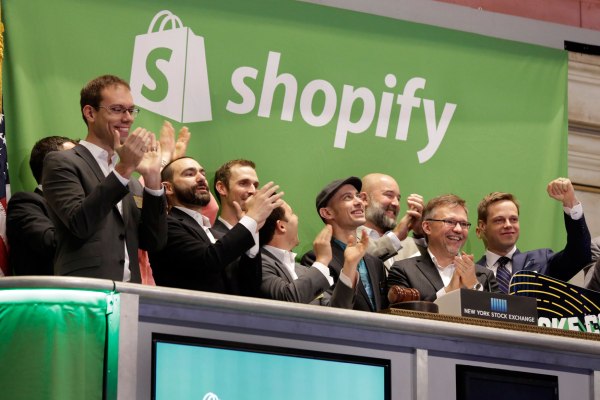Shopify announces a new merchant debit card and support for payment installment plans - 2 minutes read
 Shopify is announcing several new products and features today at Reunite, a virtual conference for the one million merchants using the company’s e-commerce platform.
Shopify is announcing several new products and features today at Reunite, a virtual conference for the one million merchants using the company’s e-commerce platform.The additions include Shopify Balance, which Chief Product Officer Craig Miller described as an attempt to rethink the bank account in a way that’s better suited to a business’ needs.
“The traditional products offered by banks were created in a world that’s very different,” Miller said. “We went back to first principles of how they should be designed.”
So Shopify Balance is a merchant account with no fees and no minimum balances.
Miller said that “initially,” the only funds in the account will come from Shopify payments — merchants won’t be able to deposit additional money, but they will be able to log in, track cash flow and pay bills. The account comes with a debit card (virtual or physical), and Shopify said it will also offer cashback rewards and discounts on expenses like shipping and marketing.
The company is also announcing a Buy Now, Pay Later feature, allowing merchants to give their customers the option to split their payments into four equal installments, with no interest or additional fees.
Buy Now, Pay Later could be particularly useful for merchants selling bigger ticket items — at a time of record unemployment and economic uncertainty, concerns about “going into a serious amount of debt” could prevent some customers from making these purchases on their credit cards. At the same time, the merchants will still get paid “instantly.” (Miller said Shopify is working with a financial partner for both Balance and Buy Now, Pay Later, though he declined to offer more specifics.)
Shopify plans to release both products later in 2020.
Other new features include a Local Delivery option allowing merchants to design a separate delivery experience for local customers. The company is also opening its robotics-powered fulfillment network to merchants and adding the option to collect tips at checkout.
Miller said the broad theme linking everything Shopify has done in the past few months is a “crazy acceleration of how important digital is” as merchants adapt to the COVID-19 pandemic.
The event also comes just one day after Facebook announced Facebook Shops, which will allow merchants to include digital storefronts on their Facebook Pages and Instagram profiles. Shopify is actually a partner in this initiative; merchants will be able to manage their Facebook and Instagram storefronts from the Shopify platform.
Source: TechCrunch
Powered by NewsAPI.org